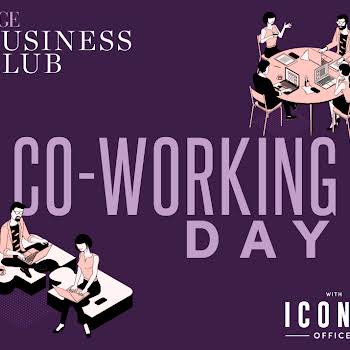
It is time to end the work dress code and allow employees to be individuals
By Colette Sexton
10th Aug 2018
10th Aug 2018
Colette Sexton, news correspondent at The Sunday Business Post, on why employers need to stop acting like our parents when it comes to work dress code – we can dress ourselves, thank you very much.
It has been an uncomfortable summer. Don’t get me wrong, a bit of sunshine was very much welcome, but it caused many of us some problems as we stared into our wardrobes in the mornings trying to figure out if the sundress we bought for a trip to Marbella in 2016 would be appropriate to wear to work. Many of you have had to survive in workplaces without air-conditioning and, to be honest, I’m not sure how you did so without disintegrating into a puddle of sweat. But it turns out that, as we have been trying to figure out if that skirt is too short for an office meeting, men have actually had it worse than us.
While one in ten employees in Ireland is forced to adhere to gender-specific rules at work, men are actually more likely to be scrutinised for their appearance at work. The data from job site CV-Library found that 14.2 per cent of employees in Ireland has to follow gender-specific rules at work, even though over half (57.1 per cent) said the rules were ‘sexist’. The most common rules reported from the study of 1,100 professionals included men not being allowed to wear shorts (67.7 per cent); men not being allowed to wear jewellery (66 per cent); men not being allowed to have piercings (64.6 per cent); men having to wear ties (55.7 per cent); and men not being allowed to have long hair (33.3 per cent). Surprisingly, none of the top five rules reported related to female-specific rules, but all forms of sexism should be challenged. Why should women be allowed to wear jewellery if men are not? Why are men forced to wear ties if women are not?
I trace my hatred of the uniform back to my school days when I was forbidden to wear my jacket indoors over my school jumper on winter days (this summer aside, I am usually a cold-blooded creature). I understand school dress codes. It is easier for parents and prevents competition between students over who has the most designer gear. But in the workplace, strict dress codes are, and should be, dying.
It is understandable that employers expect their employees to be presentable when they are representing their company. However, the days of telling people what to wear, unless it is required safety gear, should be over. We are not a bunch of mindless robots who must all act and look alike. People should be allowed to express themselves through their clothes as an extended branch of their personalities. In 2016, The New York Times claimed that the end of the office uniform was nigh, stating: “The slippery slope may have started as a gentle incline way back in the 1970s, and become a bit steeper during the Casual Friday movement of the 1990s and the success of the Facebook I.P.O. in 2012 with its hoodie-wearing billionaires.”
In December 2015, the New York City Commission on Human Rights announced new guidelines for the municipal human rights law that banned “enforcing dress codes, uniforms, and grooming standards that impose different requirements based on sex or gender.” Basically, no employer can make men wear ties or women wear heels unless both sexes have to wear them. In 2017, John Bercow, the Speaker of the House of Commons, announced that male MPs would no longer be required to wear a necktie in order to ask a question – changing a tradition that had gone on for centuries.
But clearly, that change is not coming too quickly in Ireland. Employers need to cast out their old-fashioned attitudes and trust their employees to dress themselves.























